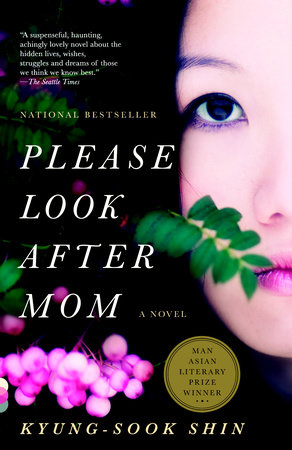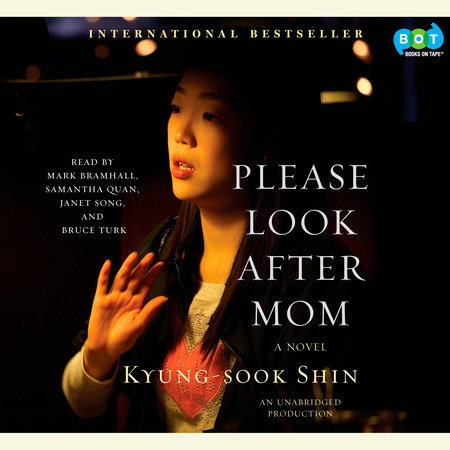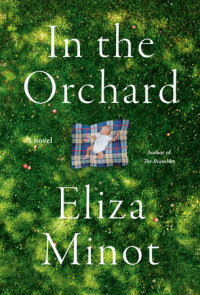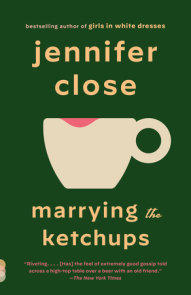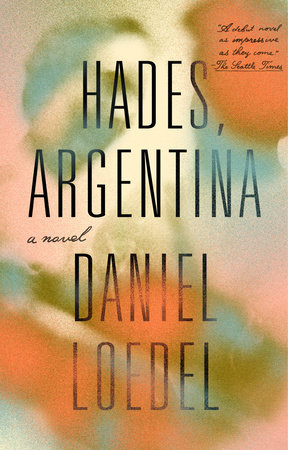

Please Look After Mom
By Kyung-Sook Shin
By Kyung-Sook Shin
By Kyung-Sook Shin
By Kyung-Sook Shin
By Kyung-Sook Shin
Read by Various
By Kyung-Sook Shin
Read by Various
Part of Vintage Contemporaries
Category: Women's Fiction | Literary Fiction
Category: Women's Fiction | Literary Fiction
Category: Women's Fiction | Literary Fiction | Audiobooks

-
$18.00
Apr 03, 2012 | ISBN 9780307739513
-
Apr 05, 2011 | ISBN 9780307595492
-
Apr 05, 2011 | ISBN 9780307747372
477 Minutes
Buy the Audiobook Download:
YOU MAY ALSO LIKE
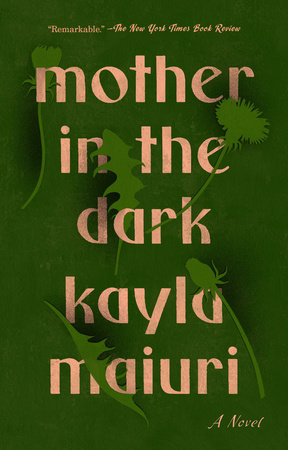
Mother In the Dark
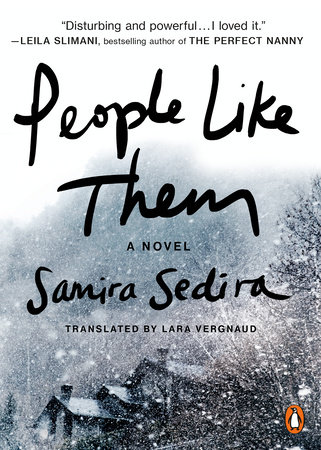
People Like Them

After the Sun
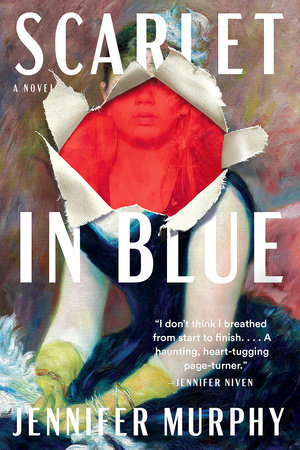
Scarlet in Blue
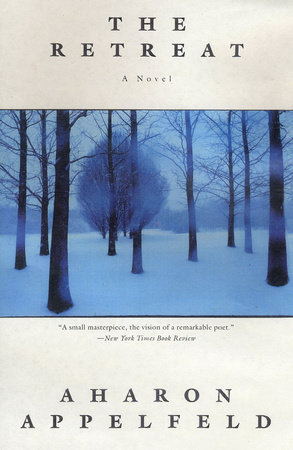
The Retreat
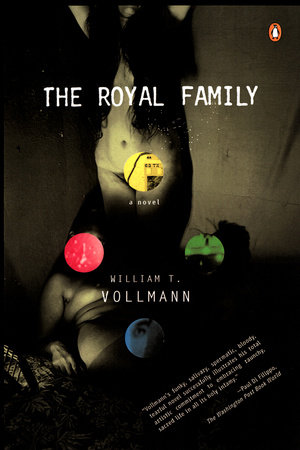
The Royal Family
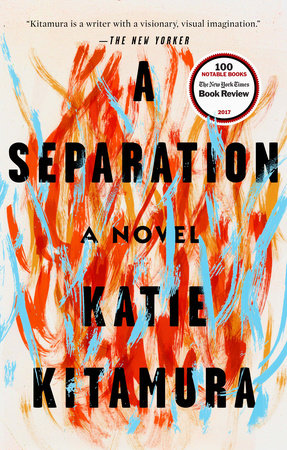
A Separation
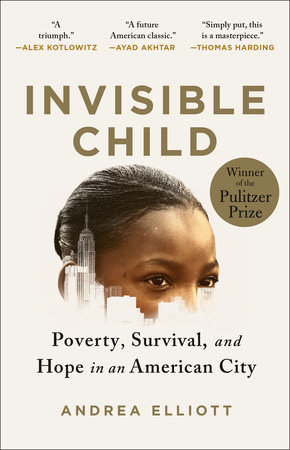
Invisible Child
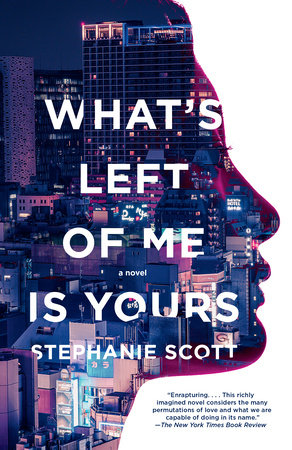
What’s Left of Me Is Yours
Praise
“A moving portrayal of the surprising nature, sudden sacrifices, and secret reveries of motherhood.” —Elle
“Intimate and hauntingly spare. . . . A raw tribute to the mysteries of motherhood.” —The New York Times Book Review
“Here is a deeply felt journey into a culture foreign to many—yet with a theme that is universal in its appeal. A terrific novel that stayed with me long after I’d finished its final, haunting pages. This is a real discovery.” —Abraham Verghese, bestselling author of The Covenant of Water
“Lovely. . . . Please Look After Mom, especially its magical, transcendent ending, lifts the spirit as only the best writing can do.” —Minneapolis Star-Tribune
“A suspenseful, haunting, achingly lovely novel about the hidden lives, wishes, struggles and dreams of those we think we know best.” —The Seattle Times
“Shin renders a tender and beautiful portrait of South Korea, but the novel recognizes a familial dilemma experienced throughout the world.” –Ms. Magazine blog
“The most moving and accomplished, and often startling, novel in translation I’ve read in many seasons. . . . Every sentence is saturated in detail. . . . It tells an almost unbearably affecting story of remorse and belated wisdom that reminds us how globalism—at the human level—can tear souls apart and leave them uncertain of where to turn.” —Pico Iyer, Wall Street Journal
“The novel perfectly combines universal themes of love and loss, family dynamics, gender equality, tradition, and charity with the rich Korean culture and values which make Please Look After Mom a great literary masterpiece.” —Seattle Post-Intelligencer
“An authentic, moving story that brings to vivid life the deep family connections that lie at the core of Korean culture. But it also speaks beautifully to an urgent issue of our time: migration, and how the movement of people from small towns and villages to big cities can cause heartbreak and even tragedy. This is a tapestry of family life that will be read all over the world. I loved this book.” —Gary Shteyngart, author of Super Sad True Love Story
“Haunting. . . . The novel’s language—so formal in its simplicity—bestows a grace and solemnity on childhood scenes that might otherwise be overwrought. . . . Throughout the novel, the rhythms of agrarian life and labor that Shin deftly conveys have a subtle, cumulative power.” —Boston Sunday Globe
“An affecting account of a slow-burn family break-up. . . . Well-controlled and emotionally taut. . . . What distinguishes this novel is the way it questions whether our pasts, either public or private, are really available for us to recollect and treasure anyway.” —The Financial Times
“A captivating story, written with an understanding of the shortcomings of traditional ways of modern life. It is nostalgic but unsentimental, brutally well observed and, in this flawlessly smooth translation by Chi-Young Kim, it offers a sobering account of a vanished past. . . . We must hope there will be more translations to follow.” —Times Literary Supplement (London)
“A poignant story of a family told in four voices. . . . Shin’s storytelling and her gift for detail make Please Look After Mom a book worth reading.” —Post and Courier
“Shin perceptively explores the greatest mystery—not Mom’s disappearance, but who Mom really was. Every mom, that is.” –Richmond Times-Dispatch
“Here is a wonderful, original new voice, by turns plangent and piquant. Please Look After Mom takes us on a dual journey, to the unfamiliar corners of a foreign culture and into the shadowy recesses of the heart. In spare, exquisite prose, Kyung-sook Shin penetrates the very essence of what it means to be a family, and a human being.” —Geraldine Brooks, Pulitzer Prize–winning author of March
“Shin is a scribe with a slow and steady pulse; this is writing that allows you to meander with your own thoughts (and reflect on your own mother, perhaps), while still following the physical and mental travels of her characters. . . . Plain and softy insistent eloquence.” —Hyphen Magazine
“Intriguing. . . . It is easy to see the source of this global popularity, for not only is Shin’s absorbing novel written with considerable grace and suspense, but she also has managed to tap into a universality: the inequitable relationship between a mother and her children.” —Bookpage
“An arresting account of the misunderstandings that can cloud the beauty of the affection and memories that bind two very different generations. . . . A touching story that effectively weaves the rural, ages-old lifestyle of a mother into the modern urban lives of her children.” —Newark Star-Ledger
21 Books You’ve Been Meaning to Read
Just for joining you’ll get personalized recommendations on your dashboard daily and features only for members.
Find Out More Join Now Sign In








